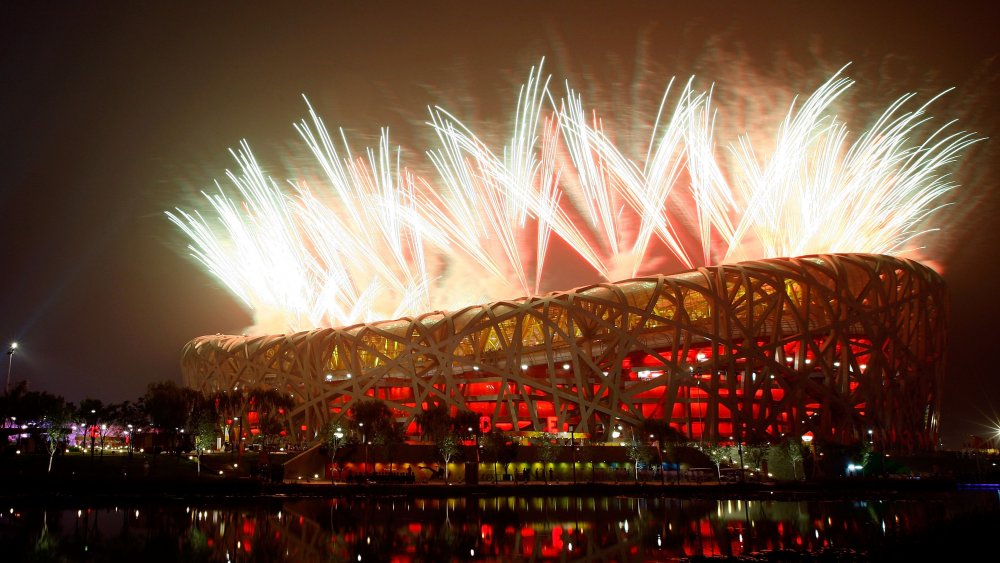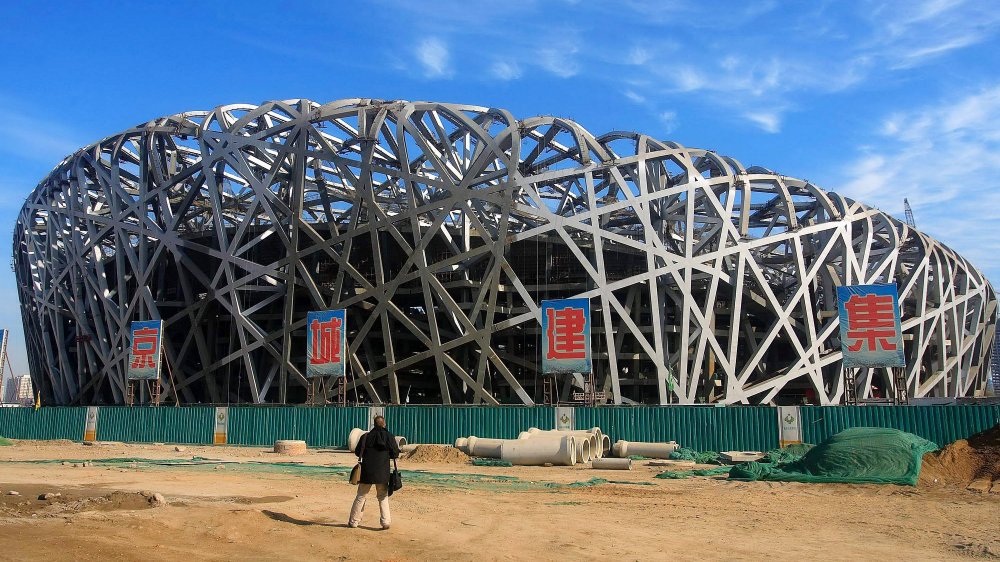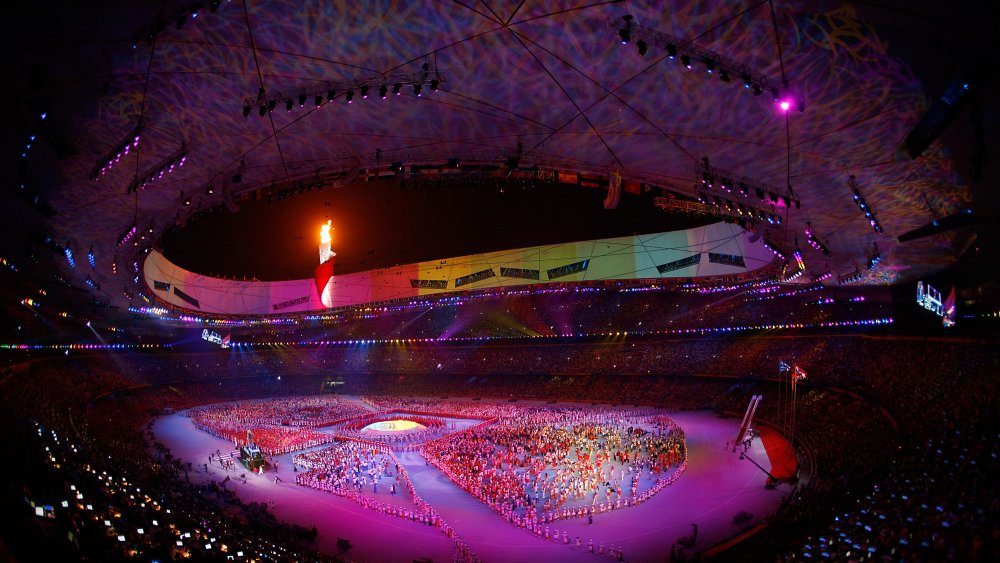Here's How The Olympics Caused The Downfall Of One Beijing Stadium
Hosting the Olympic games requires a lot of money and a lot of sacrifices on the part of a city. Increasingly, it seems cities also need to make sure they have a follow-up plan for the days following their moment of global glory. Many Olympic venues have fallen into disrepair as former host cities struggle to figure out what to do with the massive new stadiums they built in order to host the games. Even some of the wealthiest countries have had trouble with the upkeep of their one-time Olympic venues. Beijing, where the 2008 Summer Olympics were held, faced this dilemma when deciding how to maintain and celebrate the jewel of the games, the Bird's Nest.
When it was first unveiled, the Bird's Nest was an architectural marvel. Officially called the Beijing National Stadium, the stadium was designed by a team of architects and artists, including the activist Ai Weiwei, reported The New York Times. It's called the Bird's Nest for the interweaving latticework surrounding it, which the Times said would "suggest rather a dark and enchanted forest in a fairy tale." Clearly, the stadium had to meet high expectations. It also boasted a retractable roof that was used to great advantage in the Beijing weather and during the grand fireworks display.
The Bird's Nest hosted the massive opening and closing ceremonies of the 2008 Olympics. It held all the athletics events — track and field, high jump, pole vault, and steeplechase, and the soccer final.
No one wanted to use it
The Bird's Nest became prominent throughout the 2008 Olympics as the world tuned in day in and day out. But after the last athletes left the Olympic village, the Beijing government had to figure out how to make a profit out of the massive structure. In 2012, it seemed the Bird's Nest stadium was in danger of being abandoned. NPR wrote that the venue looked tired. It cost $480 million to build, and an additional $11 million to maintain. The government had to make sure they can make that much just so the place doesn't fall apart. It would attract tourists; it could host concerts and sporting events. And for a while, the Bird's Nest did just that. But it's challenging to rent out a 91,000-seat stadium. The Los Angeles Times reported that in 2009, one year after it opened, the stadium hosted a special performance of the opera Turandot in 2009, and several high-profile international soccer matches. But it needed a resident team to use its facilities. Unfortunately, China's leading soccer team backed out of a deal to use the stadium because they knew they could never fill all those seats.
As The Atlantic pointed out, the Olympics' other big venue, the Water Cube, fared better by becoming a water park. The Bird's Nest was turned into a Segway track and then a snow palace to attract visitors.
The world will see it again
Lately, however, the Bird's Nest has started to come back from the brink. Even with the cheesy tourist trap activities, the stadium remains a popular tourist attraction. It's seen huge concerts by K-Pop artists and regularly hosts the finals for the Chinese version of The Voice. It's also appeared in several versions of The Amazing Race as a pit stop and roadblock. Soccer and other sports events occur there as well. In 2017, the Bird's Nest was the venue for the League of Legends championships. The Chinese government has said that the Bird's Nest is profitable.
The Bird's Nest might also see another resurgence of sorts. The South China Morning Post wrote the stadium would be used for the upcoming 2022 Winter Olympics. It will reportedly be the venue for both the opening and closing ceremonies once again. Meanwhile, the Water Cube will be transformed into the Ice Cube for all ice-based sports.
For some people, the Bird's Nest will remain a monument to the massive, but ultimately pointless, arenas built to host the Olympics. Years after its glory days as an Olympic venue, t is at least getting some use — probably not to the scale it can hold, but hey, not everything is the Olympics. Just be glad the Bird's Nest hasn't been overrun by vegetation like so many other Olympic stadiums.


